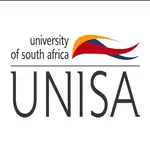UNISA Physiology Course Module 2026-2027
The Physiology program at UNISA offers a comprehensive curriculum for students interested in the field of Life Sciences, particularly those aspiring to careers in health sciences, research, or the pharmaceutical industry. This program provides in-depth knowledge of various physiological systems and processes, combining theoretical understanding with practical application. Here’s an overview of the key modules available in this program:
NQF Level 5 Modules
CHE1501, CHE1502, CHE1503 – Fundamental Chemistry modules.
BLG1501 – Basic Biology module.
EUP1501 – Ethical Use of Information Technology.
STA1510 – Introduction to Statistics.
FIS1601 – Human Anatomy and Physiology
Provides foundational knowledge in human anatomy and physiology.
NQF Level 6 Modules
Digestion, Endocrine Control, and Metabolism – FIS2601
Explores gastrointestinal tract function, the endocrine system, and metabolic pathways.
Respiration and Excretion – FIS2602
Focuses on the physiological anatomy and functioning of the respiratory and excretory systems.
Physiological Defence Mechanisms – FIS2603
Covers the functioning of the human immune system and processes in haemostasis and thermal regulation.
Physiology II (Practical) – FIS2604
Offers exposure to laboratory techniques and equipment in physiology experiments.
NQF Level 7 Modules
Physiology of the Nervous System – FIS3701
Examines anatomical and physiological aspects of the nervous system.
Cardiovascular System – FIS3702
Explains the physiology of the cardiovascular system, including its structure, organization, and control.
Membrane and Effector Physiology – FIS3703
Provides insight into electrical activity, information transduction, and molecular mechanisms of muscle contraction.
Physiology (Practical) – FIS3704
Enables application of experimental techniques in physiology, data processing, and presentation.
General Program Details
Qualification Level: Undergraduate Degree
Language of Instruction: English
Pre-requisites: CHE1501 or CHE1502 for certain modules
Co-requisites: Specific modules require concurrent registration with related practical modules.
Purpose and Career Path
Goal: To equip students with an integrated knowledge of human physiology and its practical applications.
Career Prospects: Graduates can pursue careers in health sciences, biomedical research, education, and the pharmaceutical industry.
This program is structured to provide students with a solid foundation in physiology, preparing them for various professional roles in the medical and scientific fields. The blend of theoretical knowledge and practical laboratory experience is designed to develop a comprehensive understanding of human physiological processes and their applications.
Share This





